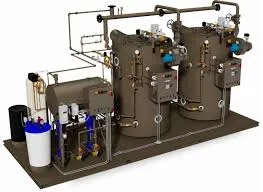
Nov . 17, 2024 16:36 Back to list
normal pressure for hot water boiler
Understanding Normal Pressure for Hot Water Boilers
Hot water boilers are essential components of various heating systems, providing consistent warmth in residential, commercial, and industrial settings. A critical aspect of a hot water boiler's operation is maintaining the correct pressure. Understanding what constitutes normal pressure for hot water boilers is crucial for their efficient performance and safety.
What is Boiler Pressure?
Boiler pressure refers to the amount of pressure produced by the boiler system, which is usually measured in pounds per square inch (psi) or bar. It is a vital parameter that affects the efficiency of the heating system. For hot water boilers, the normal operational pressure generally ranges between 12 psi and 25 psi during typical operation. However, the specific normal pressure can vary based on the manufacturer’s specifications and the boiler design.
Why is Maintaining Proper Pressure Important?
Maintaining the correct pressure in a hot water boiler is necessary for several reasons
1. Efficiency If the pressure is too low, the boiler may not be able to heat water effectively, leading to insufficient heating in your space. Conversely, excessively high pressure can cause the boiler to operate less efficiently and might result in excessive energy consumption.
2. Safety Safety is paramount when dealing with hot water boilers. Low pressure can indicate a problem, such as a leak in the system. On the other hand, high pressure can lead to dangerous conditions, including the risk of the boiler bursting or the safety relief valves failing.
normal pressure for hot water boiler

3. Longevity Consistently maintaining the recommended pressure levels can extend the lifespan of the boiler. Both low and high pressures can put undue stress on the system components, leading to increased wear and potential failures.
How to Monitor and Adjust Boiler Pressure
Monitoring the boiler pressure is typically done through a pressure gauge located on the boiler itself. Here are a few tips for maintaining appropriate pressure
- Regular Checks Inspect the pressure gauge regularly to ensure it operates within the normal range. If the pressure deviates significantly from this range, further investigation is necessary.
- Adjusting Pressure If the system pressure is too low, adding water to the system can help. Conversely, if the pressure is too high, it might be necessary to bleed some of the radiators or consult a professional to adjust the pressure relief valve.
- Leak Detection If you consistently find your system losing pressure, it is essential to check for leaks in the system. These could be present in pipes, valves, or the boiler itself.
Conclusion
Understanding the normal pressure for hot water boilers is critical for ensuring their effective and safe operation. Regular monitoring and maintenance can prevent issues, promote efficiency, and extend the lifespan of the heating system. Whether you are an experienced technician or a homeowner, knowing how to manage boiler pressure is an essential part of working with hot water heating systems. Always refer to the manufacturer’s guidelines for specific pressure requirements and consult a professional when uncertain about the operation of your boiler. Keeping your heating system in good health not only ensures comfort but also safeguards your investment in the long run.
-
High-Efficiency Commercial Oil Fired Steam Boiler for Industry
NewsJul.30,2025
-
High-Efficiency Biomass Fired Thermal Oil Boiler Solutions
NewsJul.30,2025
-
High Efficiency Gas Fired Thermal Oil Boiler for Industrial Heating
NewsJul.29,2025
-
High-Efficiency Gas Fired Hot Water Boiler for Sale – Reliable & Affordable
NewsJul.29,2025
-
High Efficiency Biomass Fired Hot Water Boiler for Industrial and Commercial Use
NewsJul.29,2025
-
High-Efficiency Biomass Fired Hot Water Boiler for Industrial Use
NewsJul.28,2025
Related PRODUCTS






















